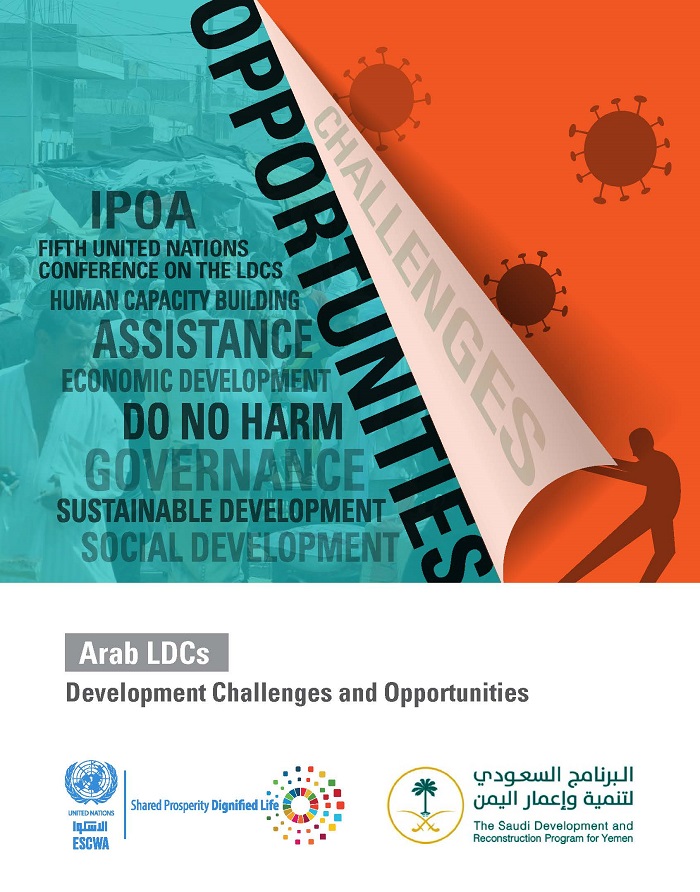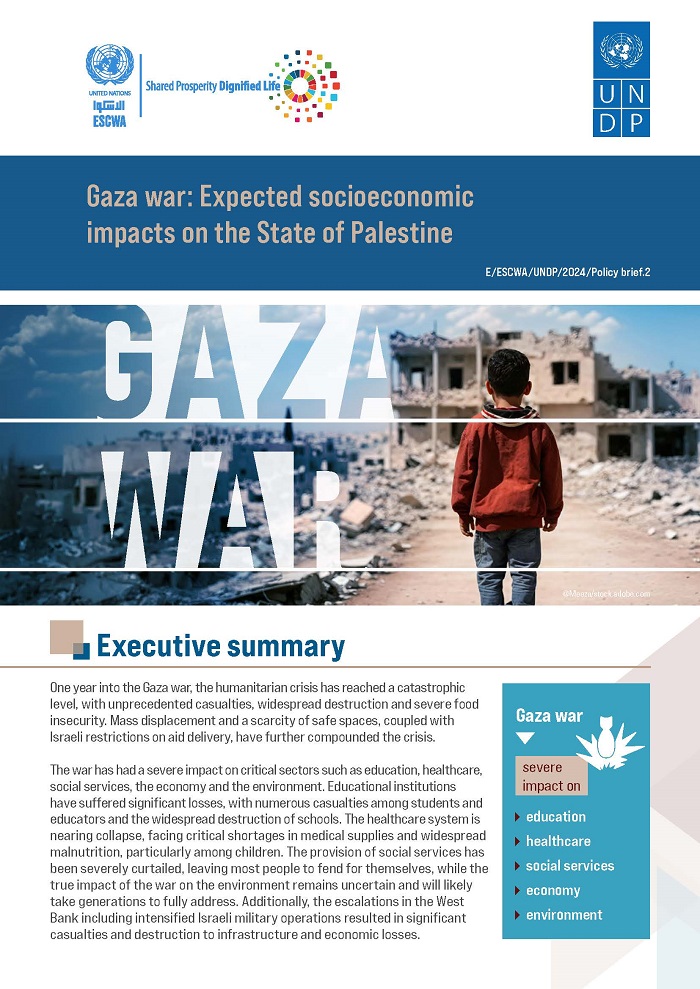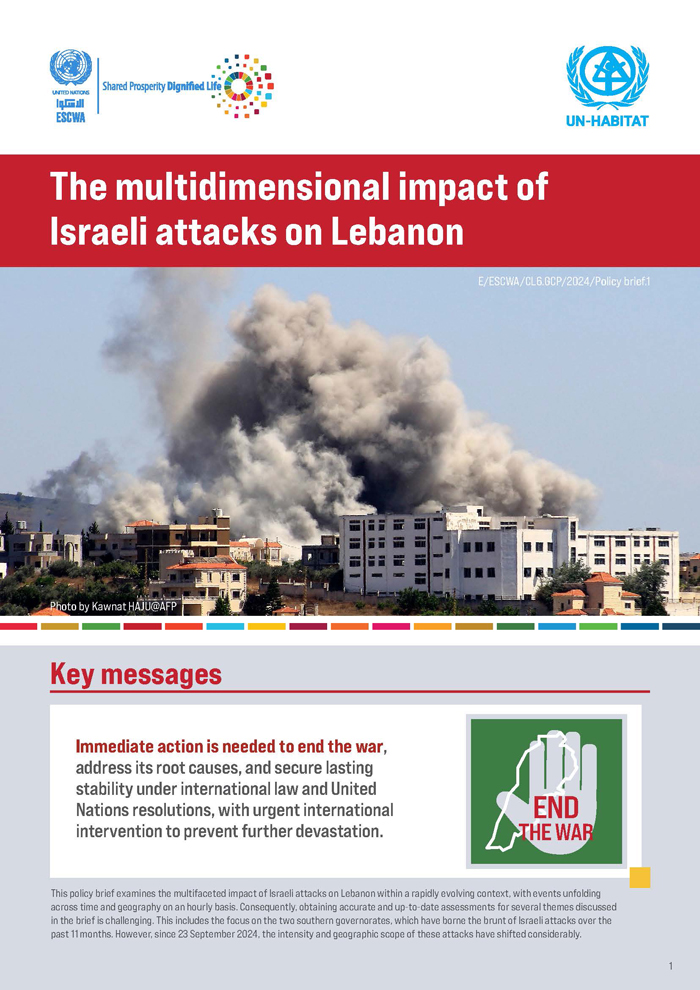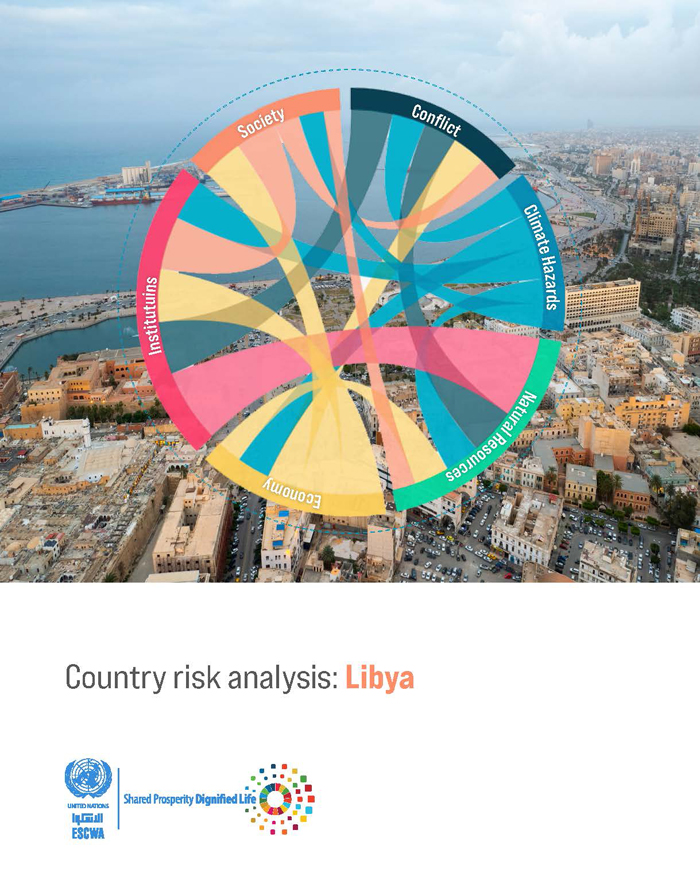
ESCWA Publication: E/ESCWA/CL6.GCP/2020/1
Country: Arab region, Islamic Republic of Mauritania, Federal Republic of Somalia, Republic of Sudan, Republic of Yemen
Publication Type: Reports & studies
Cluster: Governance and Conflict Prevention
Focus Area: Resilient development & conflict prevention
Initiatives: Partnerships for Agenda 2030
SDGs: Agenda 2030
Keywords: Least developed countries, Human development, Socially disadvantaged persons, Economic growth, Economic development, Least developed countries, Socially disadvantaged persons, Human development, Conflict, Graduation, Governance, Financial crisis, Covid-19, Development assistance, Sustainable development, Social development
Arab LDCs: Development Challenges and Opportunities
December 2021
Least developed countries (LDCs) are among the most vulnerable countries in the world. They are characterized by structural vulnerabilities to growth, such as low per capita income and low levels of social and human development, and are often in a disadvantageous position geographically. Four ESCWA member States are ranked as LDCs, namely Mauritania, Somalia, the Sudan and Yemen. The latter three are also plagued by conflict and face chronic challenges in meeting the Istanbul Programme of Action (IPoA) graduation criteria from the LDC category. Attempts by these Governments to build sound systems of governance to make their economies more resilient have been hampered by conflict and external shocks, such as the global financial, food and oil price crises, weak human, technological and institutional capacity, limited technology transfer, a lack of domestic resources and inequality, and the recent socioeconomic effects of the COVID-19 pandemic. All these factors have induced a vicious cycle of low productivity and investment, and ultimately a low human development score.
Despite major development efforts, the outlook for Mauritania, Somalia, the Sudan and Yemen remains relatively subdued owing to multiple challenges, including the recent global COVID-19 recession, continuing adjustments to low oil and raw material prices, and regional conflicts. Notwithstanding shared features, each country faces specific challenges for the achievement of the Sustainable Development Goals. The present report provides an analytical overview of the progress and challenges faced by Arab LDCs, with a focus on the specific vulnerabilities these countries are experiencing owing to conflict and political instability. It also builds on the lessons learnt from the IPoA decade to provide key findings and recommendations for the next decade, which will be launched in Doha in January 2022. The aim is to build back better and avoid the pitfalls of the past decade, while taking advantage of the momentum presented by the 2030 Agenda implementation decade. In five thematic chapters built around the eight IPoA priorities, the present report provides comprehensive information on and analysis of progress in the implementation of the Istanbul Programme of Action. It also covers the humanitarian and development assistance provided by Arab countries and the regional and international communities to Arab LDCs.
Related content
Resilient development & conflict prevention
,
Least developed countries (LDCs) are among the most vulnerable countries in the world. They are characterized by structural vulnerabilities to growth, such as low per capita income and low levels of social and human development, and are often in a disadvantageous position geographically. Four ESCWA member States are ranked as LDCs, namely Mauritania, Somalia, the Sudan and Yemen. The latter three are also plagued by conflict and face chronic challenges in meeting the Istanbul Programme of Action (IPoA) graduation criteria from the LDC category. Attempts by these Governments to build sound systems of governance to make their economies more resilient have been hampered by conflict and external shocks, such as the global financial, food and oil price crises, weak human, technological and institutional capacity, limited technology transfer, a lack of domestic resources and inequality, and the recent socioeconomic effects of the COVID-19 pandemic. All these factors have induced a vicious cycle of low productivity and investment, and ultimately a low human development score.
Despite major development efforts, the outlook for Mauritania, Somalia, the Sudan and Yemen remains relatively subdued owing to multiple challenges, including the recent global COVID-19 recession, continuing adjustments to low oil and raw material prices, and regional conflicts. Notwithstanding shared features, each country faces specific challenges for the achievement of the Sustainable Development Goals. The present report provides an analytical overview of the progress and challenges faced by Arab LDCs, with a focus on the specific vulnerabilities these countries are experiencing owing to conflict and political instability. It also builds on the lessons learnt from the IPoA decade to provide key findings and recommendations for the next decade, which will be launched in Doha in January 2022. The aim is to build back better and avoid the pitfalls of the past decade, while taking advantage of the momentum presented by the 2030 Agenda implementation decade. In five thematic chapters built around the eight IPoA priorities, the present report provides comprehensive information on and analysis of progress in the implementation of the Istanbul Programme of Action. It also covers the humanitarian and development assistance provided by Arab countries and the regional and international communities to Arab LDCs.



